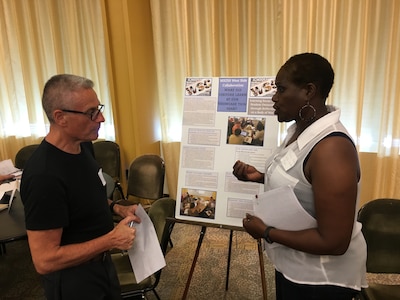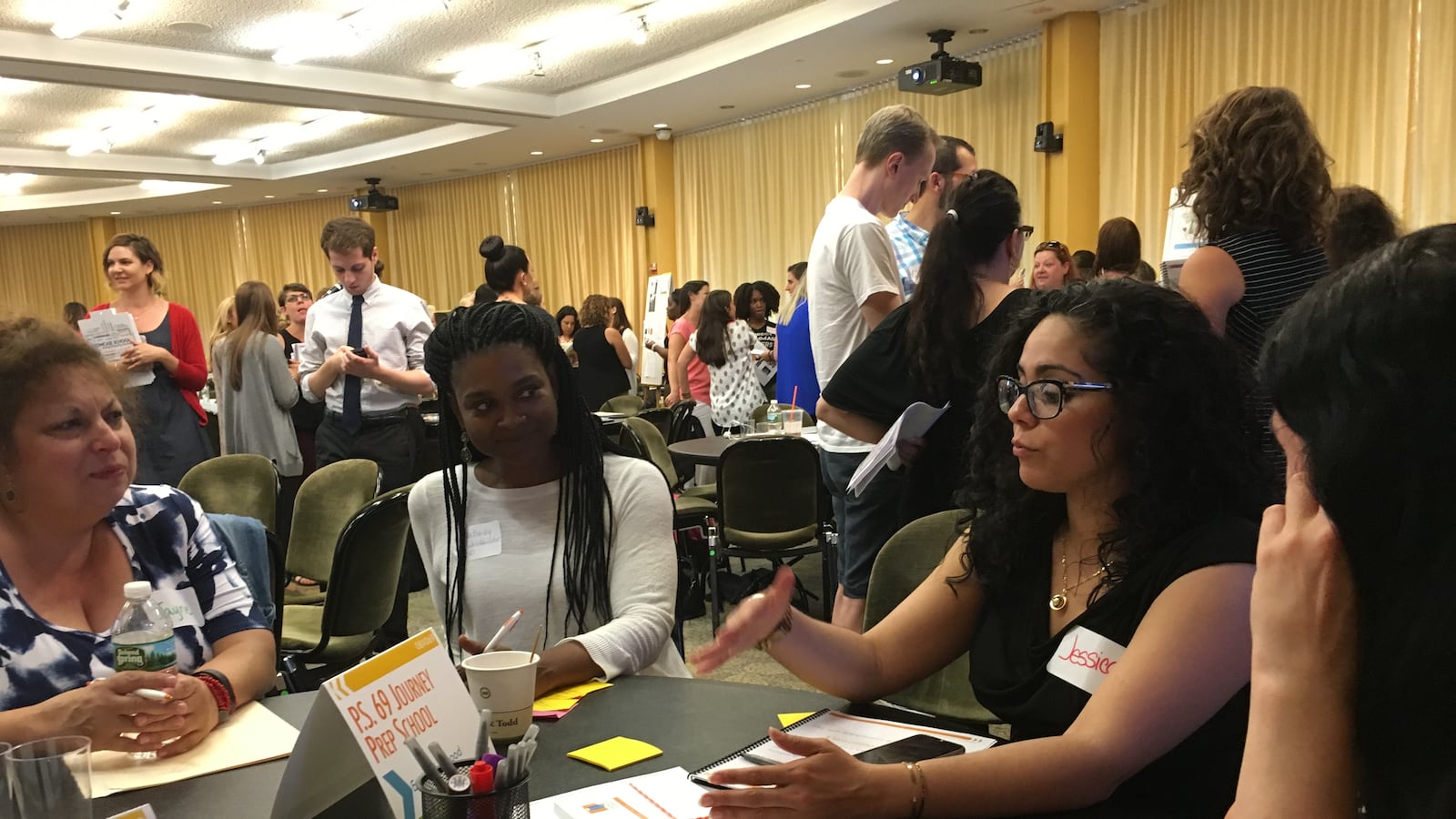Nigel Pugh knows many of his students can’t have open conversations about gender and sexuality with their parents, and that it can be risky for them to bring those discussions to school.
So as principal of Manhattan’s Richard R. Green High School of Teaching, a school that has a reputation for attracting LGBT students, Pugh has made sure there are opportunities to talk about everything from controversial transgender bathroom ordinances, to what it means to be a non-traditional family.
“Most people in a high school have a very traditional view of gender,” said Pugh. “But we have a number of students and one visiting teacher who are in the process of transitioning and rethinking their gender.” Some students, he added, “wanted to bring more sophisticated, more nuanced discussions to the table.”
But those discussions won’t necessarily stay confined to that school. Starting this fall, Richard R. Green will open its doors to dozens of educators from around the city to show off the ways those conversations are unfolding: from lunchtime and afterschool groups, to a training program — partially developed by a student — that helps teachers understand the terminology surrounding different gender identities.
Richard R. Green is one of the city’s “Showcase Schools,” a program designed to help spread effective teaching practices by asking schools to host dozens of educators at least three times throughout the year. Launched three years ago with 17 schools, the program will include 37 this coming school year, 11 more than last year.

Its expansion highlights schools Chancellor Carmen Fariña’s philosophy of school improvement, which centers on expanding opportunities for teacher training and collaboration. Roughly 300 of the city’s 1,800 public schools will participate in one of three initiatives designed to encourage schools to share ideas — including the Learning Partners Program, where one host school partners with a small cluster of others to share its strengths; the Middle School Quality Initiative, which focuses on literacy; and Showcase.
“We know that top-down solutions […] and competition aren’t going to help us get better,” Deputy Chancellor Phil Weinberg told a room full of next year’s Showcase schools, which the education department gathered earlier this week to launch this year’s program. “We have an obligation to be teachers not just of our students, but each other,” he said.
The participating Showcase schools were chosen for a variety of strengths, ranging from early childhood literacy, to the arts. Some school leaders said the program is already making a difference.
After visiting a “Showcase” interdisciplinary arts program at P.S. 69 in Brooklyn, Kasandra Lopez-Garcia, assistant principal at P.S. 39 in Staten Island, helped revamp her own school’s curriculum to include art in multiple subjects. In social studies, for instance, students at P.S. 39 now make models of covered wagons in a unit about westward exploration of the United States. “It gives students with different kinds of intelligence a chance to shine,” she said.
The Showcase program also features schools that aren’t always celebrated, including one from Mayor Bill de Blasio’s “Renewal” turnaround program.
That school, the South Bronx’s P.S. 154, was chosen partly because it encourages its paraprofessionals (who often work one-on-one with disabled students) to also work with small groups of students. That frees up the classroom teacher to shuttle around the room and check in on each student’s progress.
“It helps you utilize the resources you already have,” said Assistant Principal Jessica Cruz, of the school’s use of paraprofessionals. “What we found is [they] don’t just want to sit there” when their assigned student doesn’t need immediate attention, she added.
Still, some leaders acknowledged that despite being selected as model schools, there is still room for improvement within their own walls. Pugh, whose school is being spotlighted for its attention to LGBT students, said it will likely take years of work before all sexual orientations and gender identities are accepted outside of the “safe spaces” that have been constructed for them.
“I hope that other schools will realize this work is important and urgent,” Pugh said. “The work we’re doing is maybe slightly ahead of the curve.”

